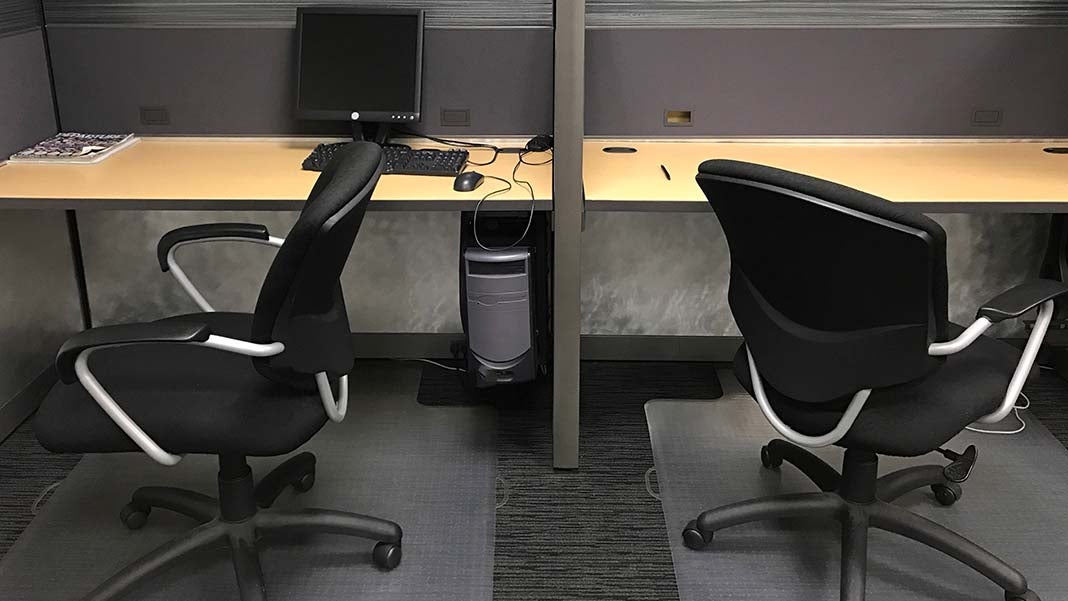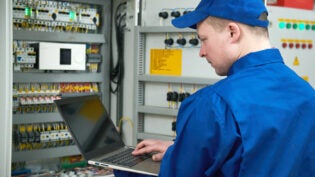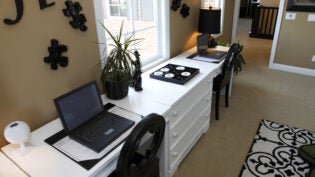
Technology experts are working to change how people work in and out of the office by changing how they interact with their physical space. Modern offices are being turned into smart offices with the skillful help of IT specialists.
Intelligent surveillance systems built to prevent shady goings-on are also used to analyze employees’ productivity throughout the day, while smart lighting and cooling systems lower the company’s environmental footprint.
Below we will cover a small bit of how smart offices (or smart businesses in general) are utilizing technologies such as the Internet of Things and Big Data to improve employee productivity as well as improving consumer experience.
Smart Offices Are Allowing More People to Work from Home
At first glance, you may start reading about smart offices and the many technological advances that run them. But, believe it or not, smart offices are paving the way for employees to work from home if there really is no logical reason for it. Those who work in accounting, office administration and especially IT capacities are finding more ads in the classifieds that read “remote” next to the description.
In a Census Bureau report from as far back as 2010 showed that, even back then, 13.4 million people in the U.S. worked from home at least one day per week. From 2005 to 2012 the remote work force grew 80 percent. This may not seem to have any correlation with the smart office trend, but upon further inspection, it has a big part to play. The entire point in a smart office is to decrease a company’s footprint on the environment.
By people being afforded the ability to productively work from home, this keeps them from having to drive or use some other form of public transportation to work. This also saves them money. Furthermore, by decreasing the number of employees in a physical office, organizations are able to downsize their office space, which also helps the organization save more money.
Remote Employee Monitoring Technology
Being a remote employee is not the same as working as a freelancer, who basically is self-employed and completes jobs based on a job-by-job basis. Remote employees are actually employed for the companies they work for, thus they have the same responsibilities of any other employee. Thanks to IoT technologies, employers are now able to employ remote management solutions in order to keep their remote employees productive.
Remote employees are becoming so common that now they have been termed “IoT-connected employees.” Yet, this term can also refer to those employees who actually work in a physical office but are connected with wearables, such as virtual assistants to stress-busting wearables and real-time translation devices.
Human Resource professionals are now faced with new complications in the workforce, as well as learning about and implementing technology that can handle the remote employees under their leadership. But it isn’t only organizations that must focus on these things, but also those who plan on pursuing employment in such a capacity. Smart home software solutions can assist remote employment and fill the gaps in practicality that the company’s technology may be lacking.
As automation begins to clean house and millions of jobs are taken from humans, people will find their daily work routine is getting up, making coffee, and sitting in their living room or personal office instead of the old 9-5 office hours of a bygone era.
Smart Office Technologies Improving Workplace Environment
Imagine working in an environment where Artificial Intelligence and Machine Learning, working along with awesome wearable gadgets such as smartwatches or glasses help you throughout the day improve your productivity in the office. We’re headed for exactly that. Even as far back as 2014, consulting firm, PwC discovered that more and more companies were incorporating wearable tech at a fast pace, with the rate increasing from 20 percent in 2012 to 40 percent in 2014.
Nevertheless, these smart gadgets that are taking over the office space are also a part of the reason why other duties are becoming more automated. Jobs that entail certain types of data reporting, basic paralegal work, bookkeeping and clerical work will become “hollowed” out if you will, with drops in wages and even loss of job positions. And though tech companies tell us not to worry – that this new technological revolution about to sweep the globe will actually create jobs, the evidence shows that more jobs are being lost rather than created at the moment.
 Author: Philip Piletic is a freelancer, writer and traveler who loves to share his experience about business, marketing and tech.
Author: Philip Piletic is a freelancer, writer and traveler who loves to share his experience about business, marketing and tech.
3077 Views












